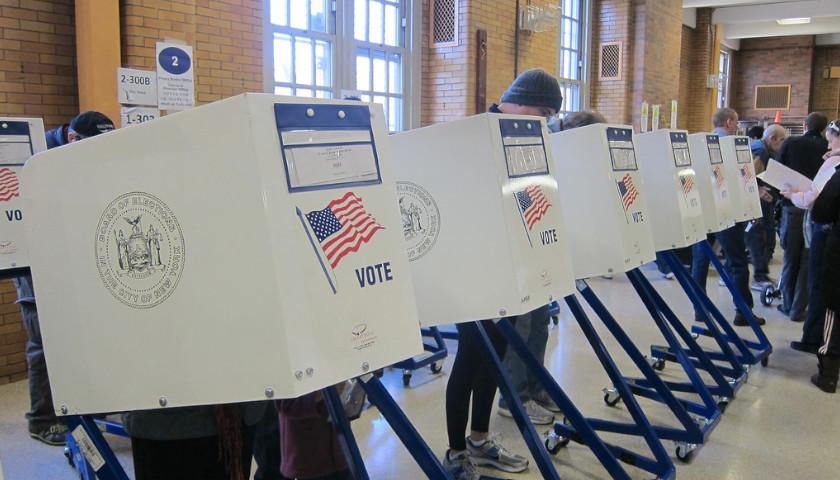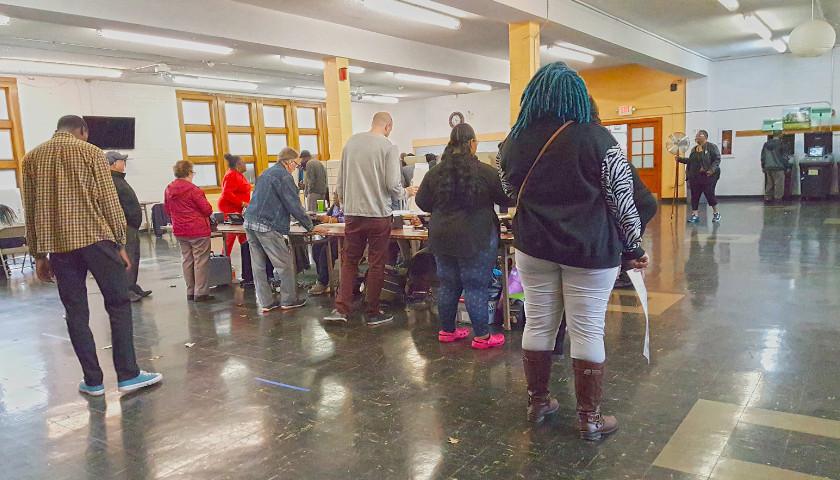A new report investigating Pima County’s 2020 and 2022 elections found multiple ways the Tucson-based county is likely violating the law, allowing opportunities for election tampering. The illegalities were described as “malfeasance, incompetence and possible criminal activity.”
The report came out about the same time as another report which found that over 18,000 ballots lacked chain of custody records in the county’s 2022 election. Coincidentally in the same election cycle, Governor Katie Hobbs edged out Kari Lake for the governor’s office by just 17,117 votes.
The new report, which was issued by two independent election integrity groups – the Pima Integrity Project (PIP) and CONELRAD Group – examined public records and summarized that the “[Pima County] Recorder appears to not be conducting voter list maintenance as they are required by law.” The teams found convicted felons and dead people on the voter rolls. Large numbers of people were added to the voter rolls prior to the elections and then removed afterward. There was no accountability for original ballots mailed to voters who requested a second one, the report found. An “overwhelming number” of inactive voters have been on the voter rolls for years, which the report said violates A.R.S. 16-165.
Tim Laux of PIP told The Arizona Sun Times, “The issues in Pima equal if not exceed those litigated in Maricopa County.”
Jack Dona, one of the founding members of CONELRAD Group, expressed skepticism that anything would be done to resolve the issues. “Until the judicial system definitively levies punishment and consequences for, at the least what we deem to be incompetent malfeasance and intentional acts of maladministration regarding the voting systems in the state, these issues will likely arise again,” he told The Sun Times.
In the 2022 general election, there were 6,835 requests for second ballots, but the report states that there was “no accountability for the original ballot that was mailed to the voter. This potentially leads to a voter voting twice.”
The teams found that 8,345 ballots were returned to the recorder’s office as undeliverable during the 2022 election, but 5,451 of those voters still show as active, and 2,440 were changed to inactive. Only 454 were removed from the voter rolls. Of the 8,345, 6,403 still show the same address where the original ballot was sent, the teams said, and 5,541 are active voters.
The teams expressed concern that the voters were not moved to the inactive rolls. If a ballot is returned as undeliverable, the recorder is supposed to send a non-forwarding letter to the undeliverable address. If the letter is not returned within 30 days, the voter’s status is changed to inactive and their name removed from the permanent early voter list. All of the voters that were not transferred to inactive will continue to receive early ballots, which the report called a “questionable practice.”
The teams wondered, “It becomes very suspicious that the Recorder actually sent out 8,345 letters, and only 2,440 were moved to inactive status, yet the vast majority of voters with returned ballots are still showing active. If their address has not changed, did the Post Office have some epiphany and suddenly find the actual delivery location? Did 5,541 voters contact the Recorder’s office, and if so, for what reason? It seems questionable that there are so many voters remaining active.”
The report found over 3,000 voters who had been on inactive status for many years. This violates A.R.S. 16-165(A)(7) and A.R.S. 16-166(C), which require the purging of inactive voters after four years “or through the date of the second general election for federal office following the date of the notice from the county recorder.”
The teams found three voters with felony convictions on their registration records. Two were on the active early voter list, and the third was inactive but would have still been allowed to vote. A.R.S. 16-101(A)(5) prohibits felons from voting unless their rights have been restored.
The report said nine people on the voter rolls were over the age of 116. The oldest person in the U.S. is 116 years old and not a resident of Arizona.
Large numbers of voters were added to the rolls immediately before the 2020 election in October 2020, and then large numbers were removed shortly after the election until January 2023. The teams found that almost 40 percent of the voters added to the rolls in 2020 were added on October 14, 2020, which “seems strange.”
Between October 14, 2020, and January 5, 2021, the teams found that “7,973 voter records were completely purged from the data.” The report said, “There is no reason given because if the record doesn’t exist, we cannot look at the change type code to see why the record was purged.” They speculated, “I don’t question that records went away if I had any confidence that the Recorder was managing the rolls in an honorable fashion, but think of this, if they went away is it possible that person could have voted?”
The teams found that 285 ballots in the 2022 election were returned to the elections department due to the deceased recipients. However, 16 still show up as active and 12 as inactive. Of those 28, one voted in the 2023 Tucson Consolidated Election. A.R.S. 16-165(A)(2) requires the removal of dead voters from the rolls. “One dead voter voting in an election is one vote disenfranchised by a living voter,” the report said.
The teams found 491 voters who were 100 or older. One had died in 1991 but was still on the rolls. Another voter who voted in 2020 and 2022 would have been 109 or 110 in 2020 and 111 or 112 in 2022. The report stated, “It would appear that the County Recorder is not interested in cleaning the voter rolls.”
The report observed, “Of note is the very ridiculous remark made by the County Recorder at the July 2023 EIC meeting that they also have been known to send Birthday Cards to these older voters.”
Dona holds 43 intelligence and technical certifications and diplomas from civilian colleges, technical schools, and military academies. He served in military intelligence before retiring as a master sergeant/first sergeant. Laux is a database expert. In February, PIP and CONELRAD issued a report addressing other problems in Pima County’s 2022 election.
– – –
Rachel Alexander is a reporter at The Arizona Sun Times and The Star News Network. Follow Rachel on Twitter / X. Email tips to [email protected].
Photo “People Voting” by Joe Shlabotnik. CC BY-NC-SA 2.0.





